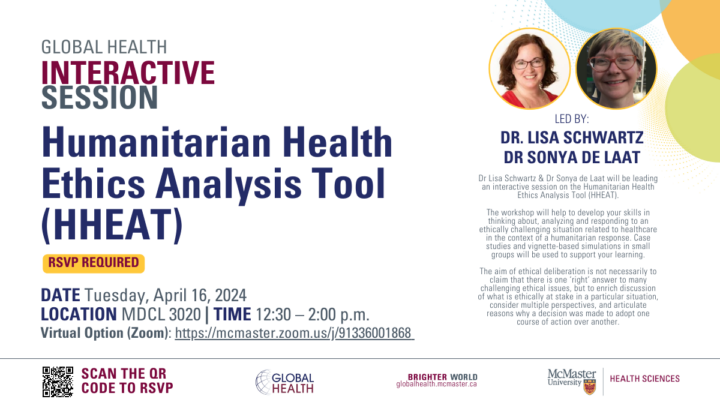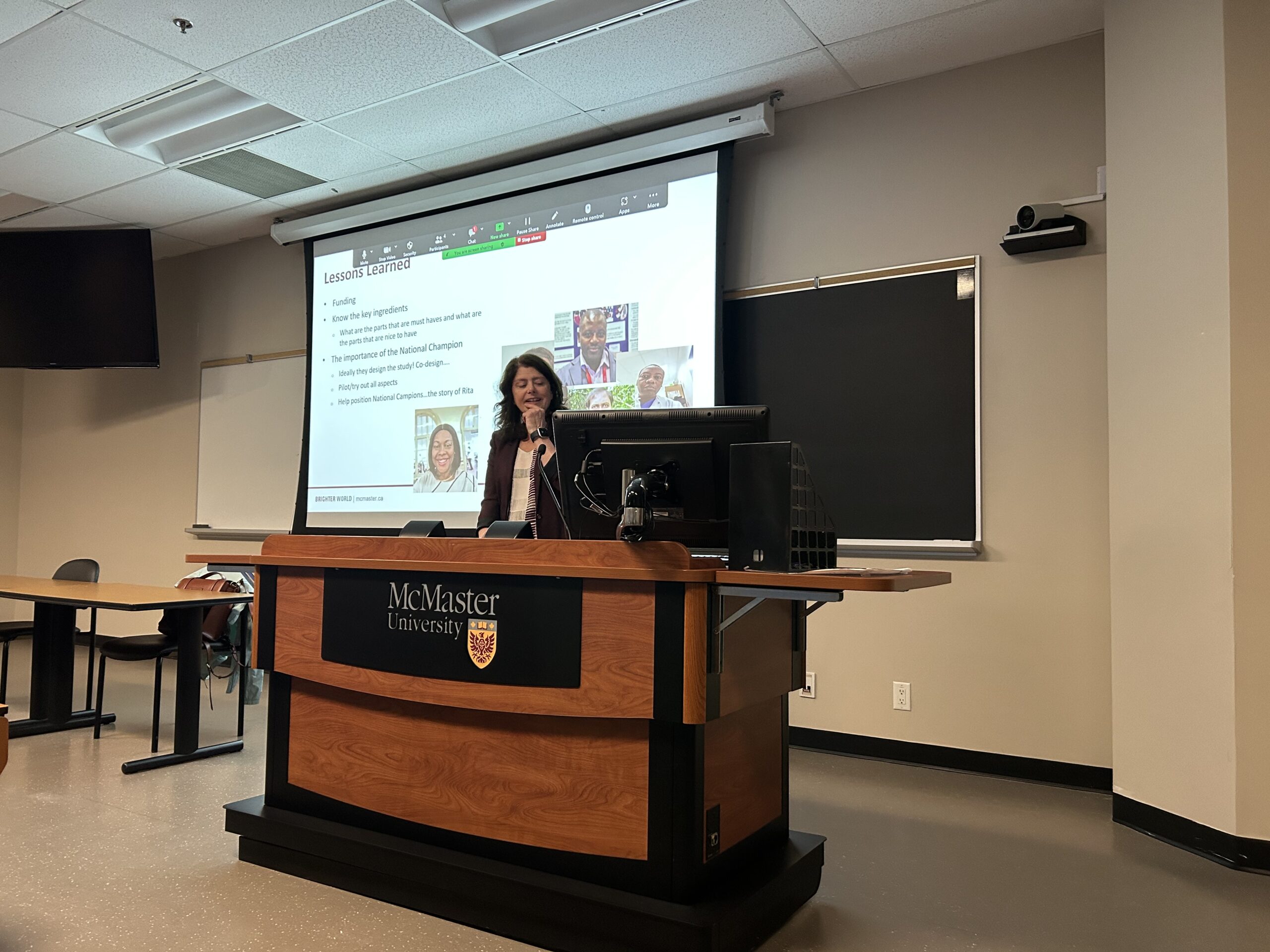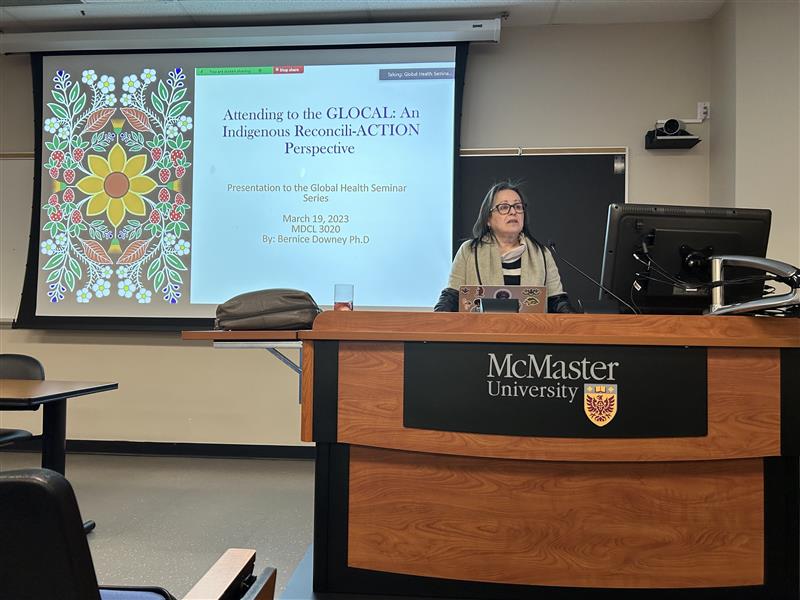The Inside Scoop: A virtual work-integrated learning practicum with MSF
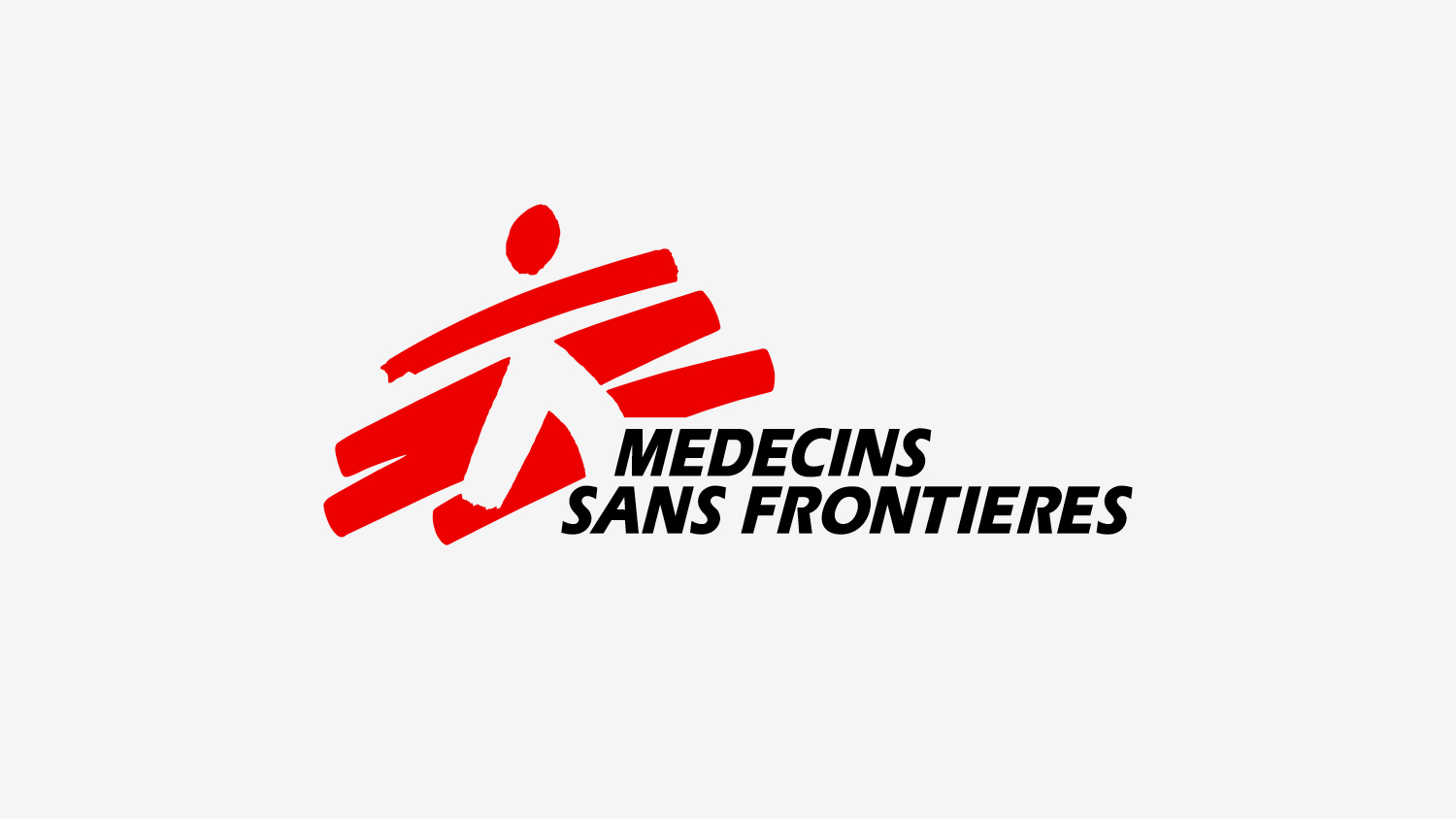
For McMaster University MSc in Global Health students, Mignon Le Roux and Soren Meeuwisse, Doctors Without Borders/Médecins Sans Frontières (MSF) has been a dream career organization.
It was on the Winter Term on mobility exchange in the Netherlands at Maastricht University in January 2022 where Mignon and Soren officially met. They quickly became close friends while bonding about their feelings of imposter syndrome from being initially waitlisted for this MSc in Global Health program. Together, they began to tackle these feelings, navigate their thoughts and emotions in response to the provoking global health course learning, and shoot for the stars of their dreams (not to mention travel to Venice together). These friends both secured a work-integrated learning (WIL) practicum position with MSF Canada which propelled them into a strong academic collaboration partnership and friendship.
This blog post expresses how Mignon and Soren balanced the virtual WIL lifestyle, how they came to learn the importance of peer support in the passionate yet challenging field of Humanitarian Aid, and how they achieved a long-term dream despite previous setbacks.
What were your tasks as an MSF practicum student?
Mignon:
During my time at MSF-Canada I completed tasks for both the Philanthropy team and the Humanitarian Action on Climate and Environment Initiative (HACE). This included reports and summaries of MSF projects and current activities in specific countries, as well as prospecting research and desk research regarding climate adaptation solutions for HACE. I volunteered at and attended the annual general assembly where I was able to learn about how the movement is governed and have wonderful discussions regarding global health issues. Throughout my experience I was able to connect with so many wonderful advocates and learn about the structures and practices of the humanitarian sector.
Soren:
I completed tasks for several different supervisors and departments of MSF Canada throughout the 10 weeks, including Philanthropy, Grant Management, Corporate Partnerships, and Humanitarian Action on Climate and Environment Initiative (HACE). My deliverables required synthesizing large documents for internal purposes, desk research on corporate ESG strategies, and creation of summary reports for many different types of projects. I highly enjoyed the opportunity to be involved with MSF from several perspectives and departments, and this greatly strengthened my understanding of the internal operations of the Canadian branch of MSF.
What did your daily life look like as a MSF practicum student working virtually?
Mignon:
After completing the Winter Term in the Netherlands, I returned to my home on Vancouver Island and set up my home office for working remotely. My working hours were 7:30am-3:30pm which aligned best with the main MSF office in Toronto however sometimes due to the three-hour time difference, I would have meetings as early as 6 am. These working hours did allow time at the end of the day for other work and walks down by the beach. I also often worked from the University of Victoria library which offered a slightly different working environment. UVic is situated near Mt. Tolmie and Mt. Douglas, which are also great for study breaks!
Soren:
After the end of term in the Netherlands, I began a digital nomad lifestyle as I completed the WIL practicum, and scholarly paper while travelling around Europe and Asia. I began the practicum in Croatia, then briefly moved to Istanbul before settling in Bali, Indonesia for two months. With 12-hour time difference from Toronto, this meant that my average day was a mix of work on my laptop pool-side or in cafes with breaks for surfing, yoga, or finding good food with friends! Most meetings were between 9pm-12am, but I sometimes had to get up in the middle of the night for meetings between 1-3am. Since I often had my evenings busy with work, my day-time was my free time!
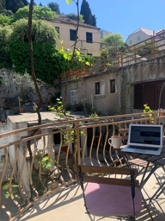 |
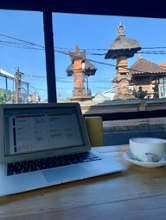 |
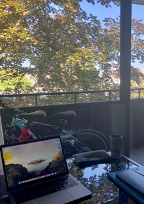 |
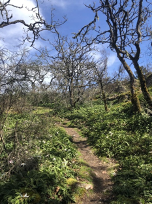 |
| View from Croatia (Soren) | Patio in Bali (Soren) | Home Office (Mignon) | Mt. Tolmie Park (Mignon) |
What were some of the challenges you faced and how did you address them?
Mignon & Soren:
One of the main challenges was the management of time zones as we often had to coordinate between EST (Toronto), PST (Vancouver), DST (Italy), and IST (Bali). It seemed as though it was always very early or very late in the day for multiple people on the call! However, with remote and virtual work increasingly becoming an integral part of our globalized world, this time-management and ability to function at odd hours of the day is a necessary skill in Global Health work.
Secondly, since the practicum was virtual, that meant a lot of time alone in front of a computer reading about violence, traumatic events, inequities, and suffering around the world. After a couple weeks, we began to discuss our personal challenges of feeling alone, shocked, or desensitized to suffering behind the screen while learning about very heavy topics.
We feel very fortunate that we became friends and effective university group work members before the practicum, and this MSF practicum allowed us to continue to build professional, academic, and personal relationships. With this pre-established base, we had a solid foundation upon which we could immediately reach out for academic, professional, or moral support within our student-team which also included two other McMaster MSc students, Rachel Housser and Jenna Lazarou.
In our weekly student meetings, we would have important time to discuss our MSF projects, how we were balancing the rest of our MSc degree requirements, and how we were doing overall. This created a supportive environment that was not only based around work and productivity but instead centered around collaborative agency and recognizing the human behind the deliverables.
What were some of the most impactful lessons learned along the way?
Global Health attracts ambitious and hopeful minds that believe in a better and more equitable future. However, entering this field as students, it can often feel heavy when learning in detail about mass suffering, global injustices, climate crises, and other harsh realities. The MSc student-team dynamic allowed for us to discuss and normalize natural human reactions we experienced behind our computer screens, so that rather than feeling isolated or overwhelmed, we felt empowered together to continue to make meaningful differences in the world.
Virtual global health work is not always easy. Challenges arise in the daily tasks, the work-life balance, the time-differences, the virtual nature, and the human reactions to suffering and injustices. However, thankfully, we had a wonderful team of students and supervisors that helped promote positivity, hopefulness, support, and continued passion in what we believe.
If you want to learn more about WIL experiences with MSF, check out this article.
Student and Alumni Profiles, Student Blog
